Taiwan Votes 2024: Why older voters are chill to be under the radar for this election
Taiwan’s older voters need understanding employers, labour insurance pension reforms and quality long-term care. What some of them also want is closer cooperation with China and the freedom to air their views without being scolded online.
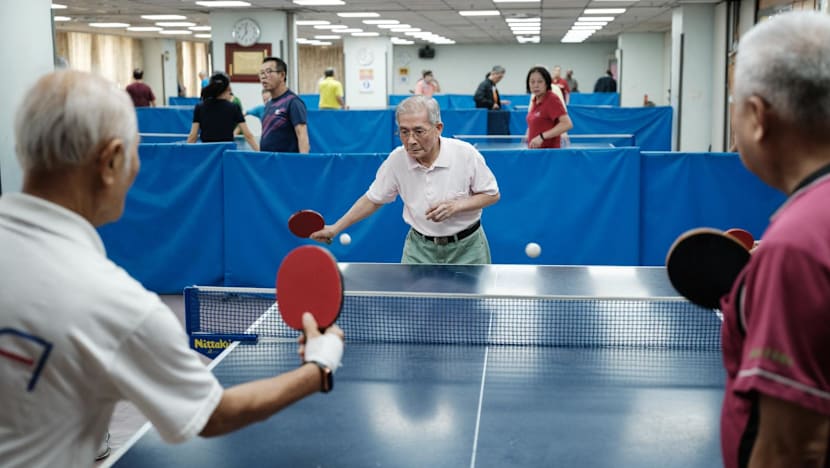

This audio is generated by an AI tool.
TAIPEI: Beauty salon owner Lina Li has a theory on why younger voters have drawn significant attention in the lead-up to Taiwan’s 2024 presidential and legislative elections.
“Young voters are more gullible. So as long as (the candidates) say what the youths like to hear, they’ll get their vote. It’s a faster way (to win votes),” said Ms Li, 64.
Security officer Mr Gao, 76, reckons it’s just the way things are. “Young people are mainstream, while older ones like us have been left behind,” he said.
But he is not bitter. “I was young once. It can’t be helped … as with every country, the young are the focus, they are the hope.”
While younger voters have hogged headlines and drawn multiple policy pledges from candidates ahead of Polling Day on Jan 13, Taiwan’s middle-aged and older voters have largely been under the radar despite making up over half of the electorate.
This could be partly because the majority of older voters with jobs and a home “only ask for stability – no war across the (Taiwan) Strait, no upheavals”, said labour expert Cheng Chih-yu of National Chengchi University.
“Maybe they care about the labour insurance pension issue but, for the majority with jobs, they just care about stability and peace,” said Professor Cheng.
This may be especially so for the older generation that experienced war in the past. “So maybe the candidates don’t need to (do so much). Older voters’ turnout at elections is higher in any case.”
In the 2020 election, turnout was highest among those aged 50 to 79, exceeding 75 per cent.
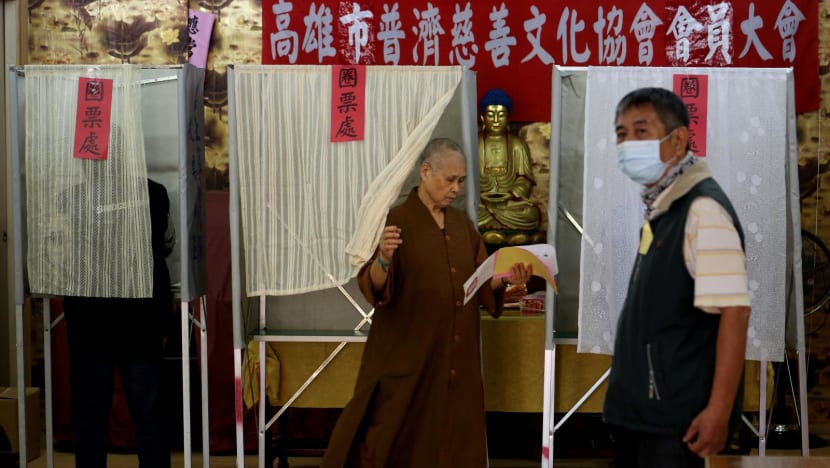
Older voters also tend to be more affiliated with certain identities or parties, noted political scientist Chen Fang-yu of Soochow University. More of them identify as Chinese and pro-KMT, he noted.
Taiwan is set to become a super-aged society by 2026, when the proportion of people over 65 reaches about 21 per cent of the population.
Middle-aged and older people, defined as those aged 45 and above, number over 10.6 million while Taiwan has about 19.5 million eligible voters.
With an ageing population, major policies affecting older voters will have wider impact, say analysts.
The issues include a labour insurance pension scheme in urgent need of reform, the labour participation rate of older Taiwanese and the growing care needs of seniors.
Elderly-related policy proposals from the presidential candidates
- Dr Ko Wen-je of the Taiwan People’s Party (TPP) has pledged to enhance how workplaces accommodate workers above the age of 65, fully cover the national health insurance fees of people aged 65 and above, and establish a long-term care insurance bureau.
- Mr William Lai Ching-te of the ruling Democratic Progressive Party (DPP) has pledged to increase incentives for employers to contribute more than the required 6 per cent of employees’ monthly salary to their labour pension accounts (a suggestion also made by TPP), subsidies to retrofit old apartment buildings with elevators or stair lifts; and boost internet usage among the elderly.
- Mr Hou Yu-ih of the Kuomintang (KMT) has pledged free national health insurance for people aged 65 and above whose households’ comprehensive income tax rate is below 20 per cent, increase healthcare spending to 8 per cent of gross domestic product (a suggestion also made by TPP), and allow people aged 80 and above to hire a foreign caregiver without a functionality assessment.
LABOUR INSURANCE PENSIONS IN NEED OF REFORM
Taiwan’s labour insurance scheme is its main pension system for retired workers, and the total amount contributed can be collected as a lump sum or monthly annuity after the stipulated age.
But without government top-ups, the pension fund faces bankruptcy. “There is insufficient income but a lot of spending, which is the effect of an ageing society,” explained Professor Cheng.
Adding strain are people who opt to collect their pensions early. The average age of people collecting a monthly pension was 61.2 in 2021, lower than the then-minimum age of 62 – this practice is allowed, but at a discount.
The DPP government has been replenishing the fund with NTD$20 billion (US$643 million) to $30 billion each year for the past two years, but it is not enough to keep it from declining, he noted.
Labour insurance pension reforms will be difficult, and at a critical moment like the election, candidates have merely said it is the government’s responsibility to replenish the fund, he added.
The direction of reforms needed is generally known, said Prof Cheng. First, people have to pay more.
Another possible tweak is how pension amounts are calculated: instead of basing it on the average of the 60 highest insured-salary months of an insured person, perhaps the average could be based on a time period of 20 years or more, he suggested. This would likely result in a more moderate pension.
A third and more painful option is delaying pension collection. The current stipulated age is 64, and will increase to 65 in 2026.
“The later you claim it, the less of a burden on the government it will be,” he said. But people will not be happy to pay more and get less, so “there will not necessarily be a consensus on this”.
CAN JOBS ADAPT TO SUIT OLDER WORKERS?
Taiwanese in their 50s and 60s benefited from its robust economic growth in the 1980s to mid-1990s, and many retired after saving up.
This explains why the labour participation rate of Taiwan’s middle-aged and older population is lower than countries in the Organisation for Economic Cooperation and Development such as Japan and Germany.
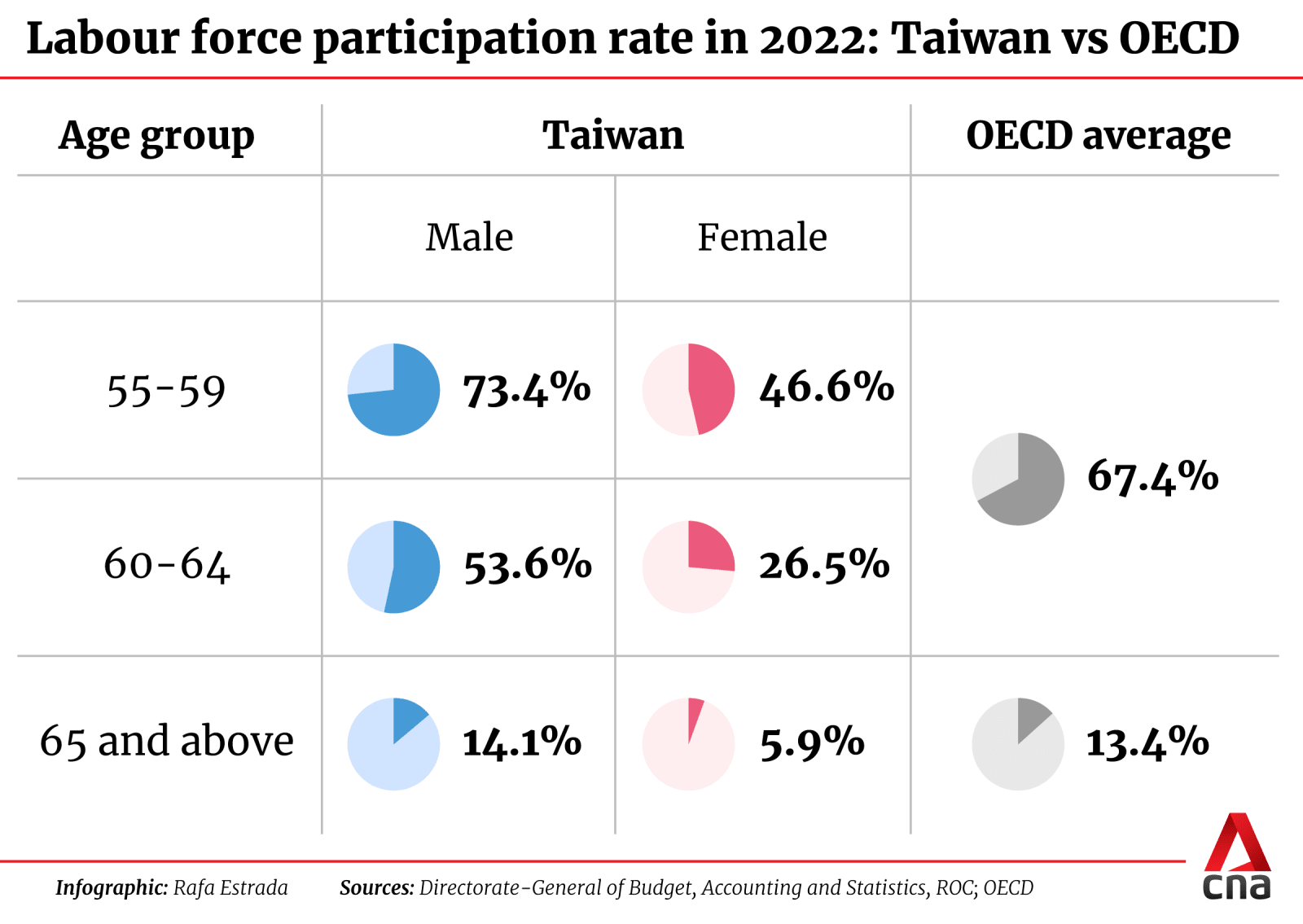
But there is a lack of information on how to prepare for retirement, and some regret retiring in their 50s and find it difficult to reenter the job market, noted Ms Shelly Wu, human resource consulting services firm 104 Job Bank’s middle-aged and senior employment division head.
High inflation in recent years has also shrunk consumers’ wallets and retirement adequacy of some Taiwanese.
“People will live longer with advances in technology, so the government should remind middle-aged and elderly people not to retire too early,” said Ms Wu.
With Taiwan facing a labour shortage, companies need more workers – but they must also adapt to the needs of older workers.
According to 104 Job Bank’s research, 48 per cent of middle-aged and older people hope the government can help companies make jobs more suitable for them.
This should include flexible schedules, tailored training and ensuring workplaces are safe and conducive, Ms Wu said.
In a hospitality setting, this could mean using lighter crockery and chairs that can be moved around more easily, for instance.
Seniors who have continued to work told CNA they enjoy being socially engaged. Security officer Mr Gao told CNA he works 12 hours per shift, but rests on alternate days.
Betel nut and auto repair shop owner Gu Chun-guang, 71, said he hopes to continue for a few more years, because “if I retire and am confined (at home), there’s nothing to do”.
Being in the shop, where friends drop by for a chat or to sing karaoke, “makes time easy to pass”, he said.
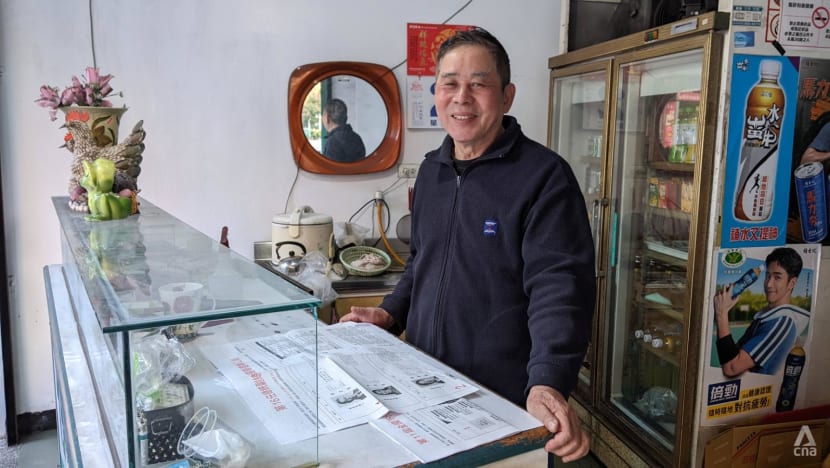
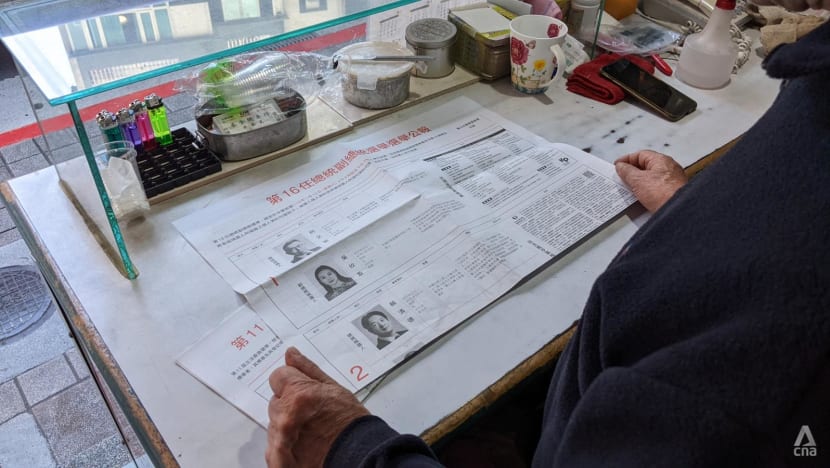
Taichung resident Chang Ming-xia, 69, worked in accounting and as a mental arithmetic teacher before joining the food and beverage industry.
At her previous workplace, however, she cooked pasta until her thumb became deformed.
There was too much standing involved and, when explaining how to prepare a variety of dishes, younger colleagues would say, “I’ll explain once and won’t repeat it”, Ms Chang recalled. She worked eight hours a day and had only four days off a month.
In 2016, she joined the Bu Lao (“not old” in Chinese) eatery run by Hondao Senior Citizen's Welfare Foundation and hasn’t looked back.
Staff work 5.5 hours per shift and schedules are highly flexible to allow for medical and other appointments. In the kitchen, labels are in larger font sizes, and the food preparation area has chairs for staff members to sit on while doing their tasks.
The staff also get to attend classes such as drama or acting workshops. “It’s a very good place,” said Ms Chang, who said she earns the government’s minimum hourly wage of NTD$183.
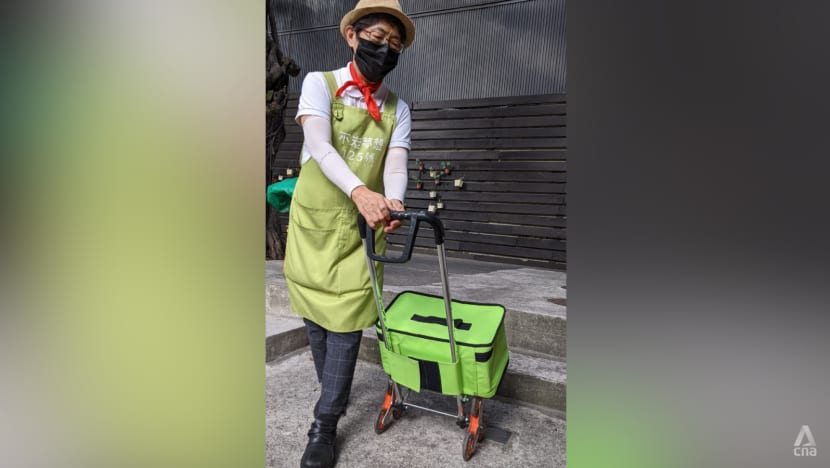
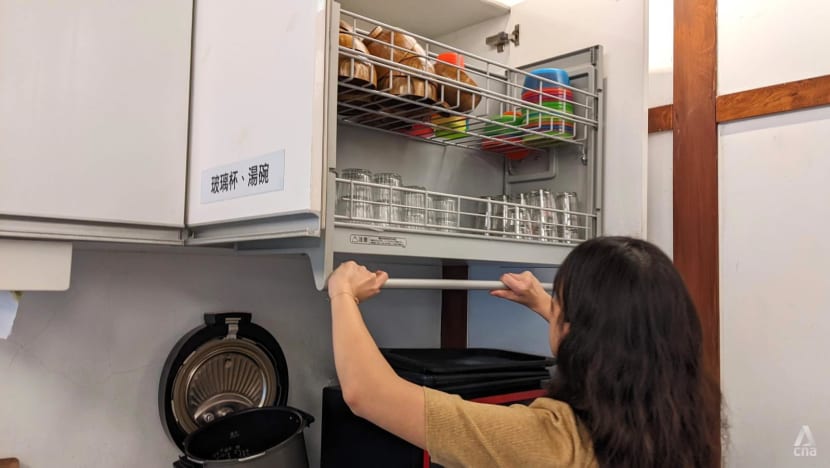
USERS PLEASED WITH LONG-TERM CARE SERVICES
As for the elderly who need help with daily activities, Taiwan appears to be doing things right.
When her in-laws needed help in 2022 after her mother-in-law was diagnosed with cancer, human resource executive Lu Chin-yen dialled the government’s 1966 long-term care hotline.
The ministry of health and welfare got in touch within a few days to make a needs and means evaluation appointment. “It was very fast,” said Ms Lu, 50, who lives in Taichung.
Home-care services for her parents-in-law began about two weeks later, and the government also provided help to install assistive devices like handrails at home.
They were considered a typical household and needed to co-pay 16 per cent of fees, with the rest funded by the government.
For her father-in-law, 23 cooking sessions and nine sessions to run errands (such as collecting medicine) amounted to NTD$8,300 a month, with Ms Lu having to fork out an “affordable” sum of NTD$1,328.
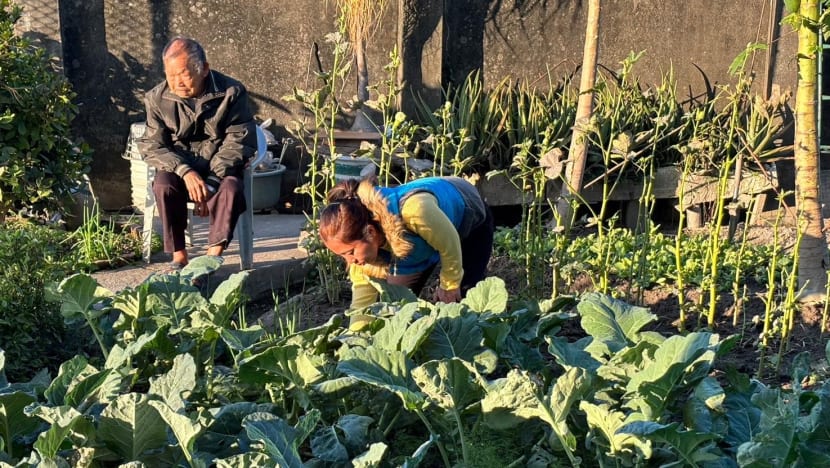
When her mother-in-law’s condition deteriorated and needed more support last August, the family transited to a live-in caregiver from Indonesia.
The experience was also pleasant, with the management agency arranging for a pre-employment visit at Ms Lu’s home for the caregiver.
Ms Lu was also upfront with the caregiver about her in-laws’ needs, and how she could not guarantee the caregiver’s duration of employment due to her mother-in-law’s advanced cancer.
The older woman died in October last year, but Ms Lu has continued to hire the live-in caregiver after consulting her 80-year-old father-in-law.
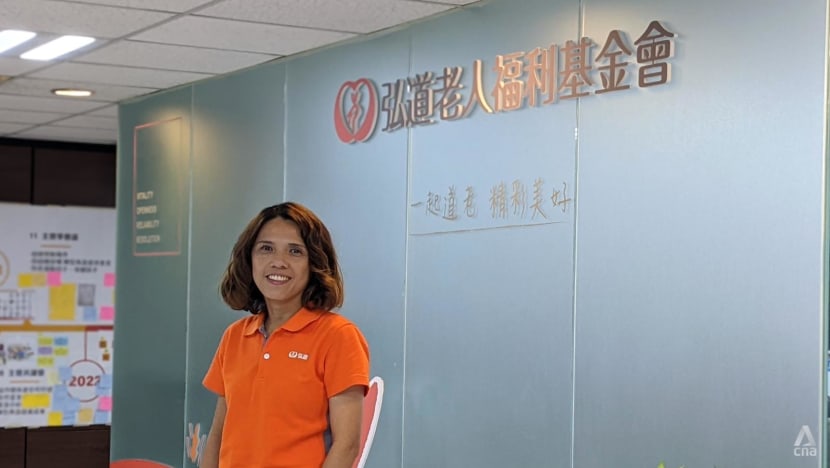
The number of home-care providers has increased under Taiwan’s current tax-funded long-term care plan, which is dubbed Long-Term Care 2.0 and prioritises ageing-in-place.
It was implemented in 2016 when the DPP became the government, with more types of services offered such as dementia care.
But there have been questions about the stability of financing, and whether the plan should be funded by both taxes and insurance, noted Hondao chief executive Ros Lee.
Hondao has about 600 employees across Taiwan, of whom around 300 to 350 – all locals – work in long-term care services.
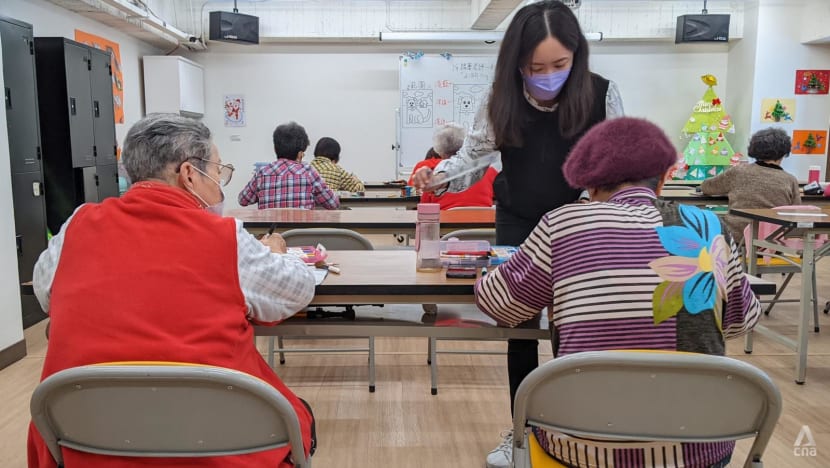
With better financial resources, better rehabilitation services could be provided, she said.
Other areas for improvement include streamlining the care planning process to reduce the number of people families have to liaise with, as well as the transition from hospital care to home care, she said.
CROSS-STRAIT FACTOR COULD DECIDE VOTE
Although care services and pensions are important, some seniors in Taiwan told CNA cross-strait ties are key to the island’s peace and stability – and will be the primary factor that determines their vote.
“I don’t have a preference for any party but I favour those that have proposed more safety in the Taiwan Strait,” declared Mr Gao, who wants to see a change in ruling party.
“I think we should preserve the status quo and promote growth and economic development on both sides of the strait.”
He has shuttled frequently between Taiwan and the mainland in the past and saw how China improved by leaps and bounds in the past two decades.
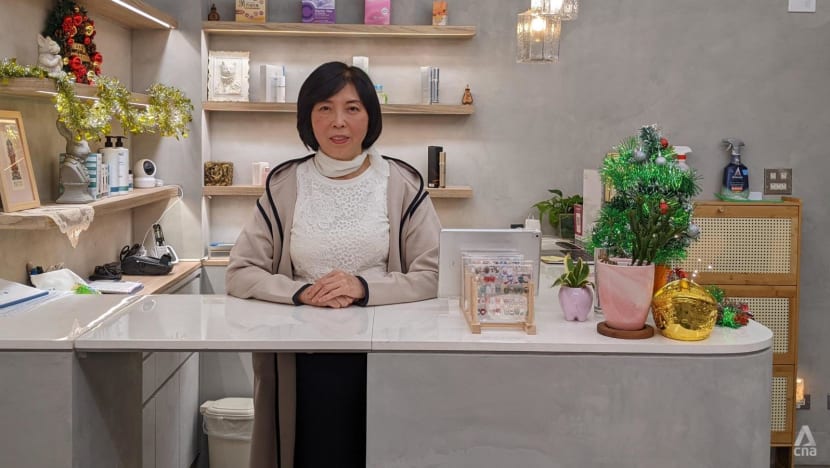
Beauty salon owner Ms Li believes Taiwan’s future lies in close cooperation and “reunification” with China. Cross-strait ties have become influenced by “international forces”, which is not good for Taiwan, she said.
“It would be better for Taiwan if the two sides of the Taiwan Strait could resolve it themselves.”
But the tone of public debate on the issue has become populist, said Ms Li. When views like hers are expressed online, “you’ll be scolded and labelled pro-Communist”, she said.
“People think that if you don’t agree with independence for Taiwan, you don’t love Taiwan,” said Ms Li, whose father is from Beijing and mother is from Taiwan. “I was born here, how could I not love it?”
She also has an apartment in Shandong that was built by a Taiwanese developer, and spends a few weeks there each year.
In her view, “if cross-strait ties are not properly handled, no matter how much we talk about people’s livelihoods, it’ll be useless”.



















